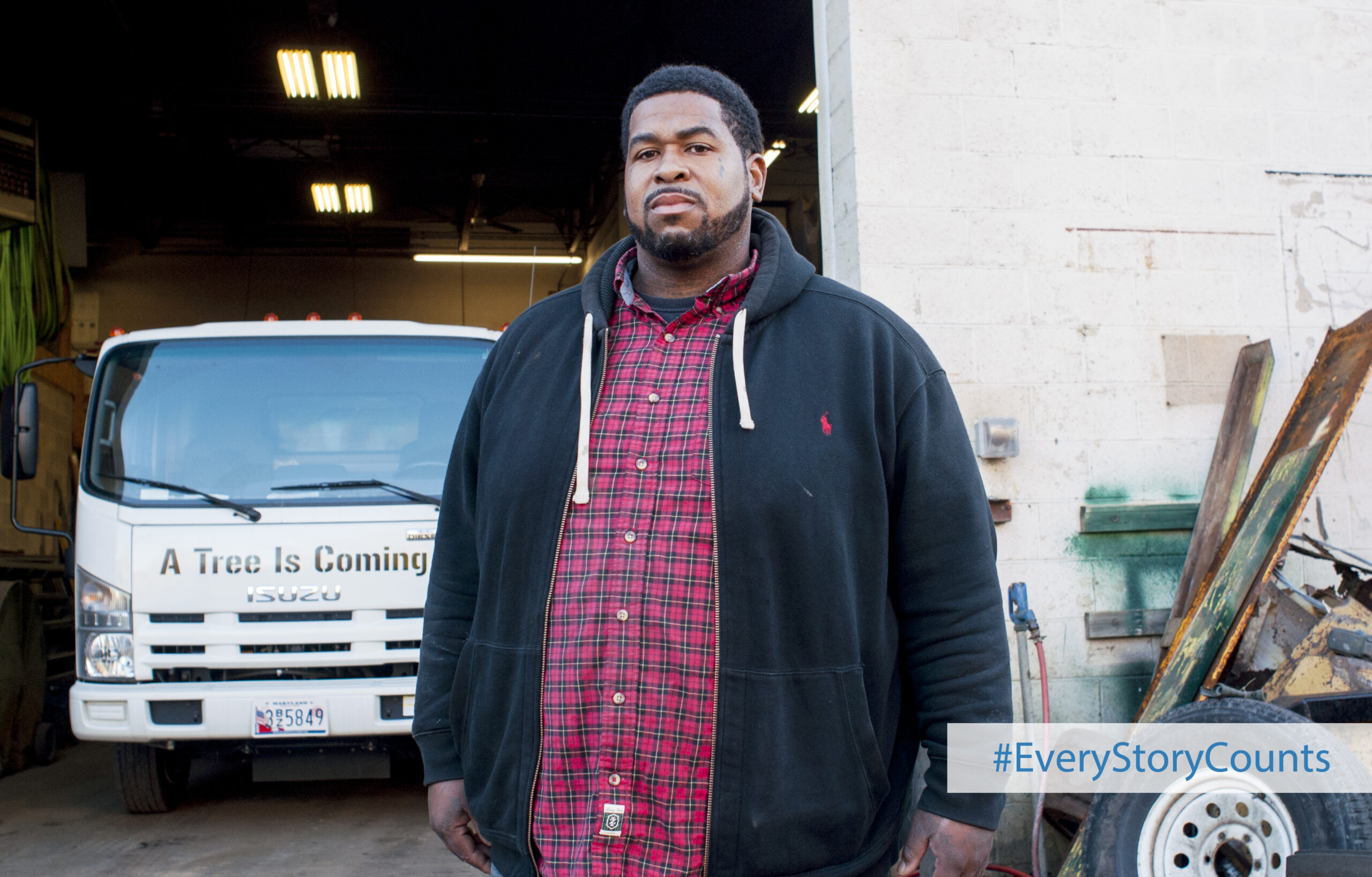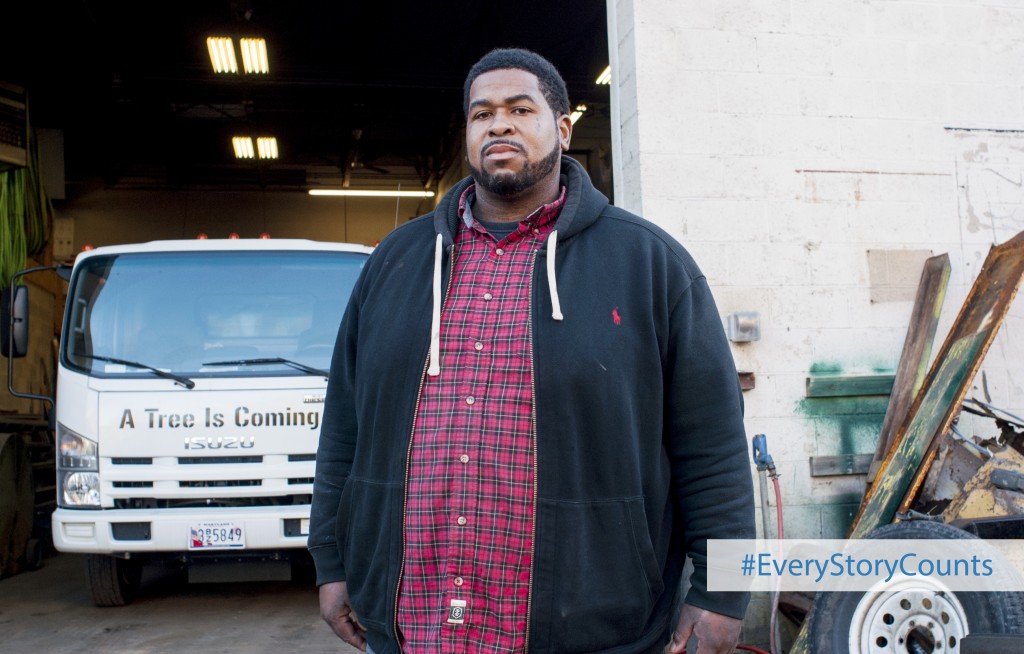Are You Inspired by Alex’s Story?
Successful re-entry for our returning citizens helps to break down the harmful prison cycle in our country that often leads to invisible life sentences for both struggling youth and adults. Concrete pathways to employment and community re-entry not only helps to reduce crime but allows those who have served their sentence an opportunity to create wealth for their families and for our neighborhoods. Baltimore’s Office of Sustainability and our network of partner organizations offer a wide range of resources and programs to help returning citizens and others gain employment and the social support they need to thrive. Know of another organization that should be on the list? Let us know at sustainability@baltimorecity.gov.
See how the Baltimore Sustainability Plan empowers community voices and the progress we’ve made as a city in our annual sustainability plan reports.
Resources
Mission: Launch seeks to improve reentry outcomes by supporting programs that accelerate self-sufficiency and improved socioeconomics outcomes for American’s with an arrest and/or conviction records.
The Enoch Pratt Free Library offers a job seeker’s toolkit with specific resources for returning citizens. They also offer trainings and one on one appointments with job-seeker coaches at many of their branches.
Job Opportunity Task Force works to increase the skills, job opportunities, and incomes of low-skill, low-income workers and job seekers. Their PastFoward program provides resources for both returning citizens and employers to build and maintain successful working relationships. They also offer a 14-week construction program leaving students ready for entry level work on any construction site.
F.A.C.E. (Freedom Advocates Celebrating Ex-Offenders) provides trainings, support, resources, mentoring, and programs for those who have experienced substance abuse and/or incarceration.
Bon Secours provides a 12 week training course that addresses the challenges of reintegration and teaches life skills, provides personalized coachings, and provides help with as transportation, child care, mental health and substance abuse concerns.
MCE Cares provides a program for returning offenders that includes a employment readiness workshop, skill building, and a cognitive behavior change program. MCE Cares also provides community organizations with resources for re-entering individuals.
Center for Urban Families works with the formerly incarcerated and the chronically unemployed to provide employment services, certification, job retention programs, and intense career case management.
Living Classrooms’ Project SERVE teaches marketable work skills, problem-solving, and social-skills training while participants conduct community revitalization projects. Project SERVE will work with participants while they are still incarcerated and on the day of their release they will enter the program where they receive wrap around services to assist in their transition.
The Druid Heights Community Development Corporation provides a ReEntry Program that provides case management, biweekly men and women’s rap sessions, transitional housing, and other programs to help ex-offenders adjust to a normal life.
The Mayor’s Office on Employment Development helps residents connect with jobs and trainings no matter the background. Through career centers and programs, they provide career counseling services, training, and job placement assistance to returning citizens.
Out For Justice is an ex-offender led organization that promotes policy reform and seeks to change the perception of the ex-offender by promoting education, empowerment, and engagement.
Civic Works’ Baltimore Center for Green Careers offers multiple programs that provide certifications and job placement assistance for high demand green jobs. The programs provides hard and soft skills training to succeed in family-sustaining careers.
The Maryland Restorative Justice Initiative advocates for long-term prisoners to get their release and provide them with a meaningful opportunity to contribute to their communities. Their mission is to advocate and promote humane and sensible criminal justice and sentencing policies for those incarcerated long term in Maryland prisons.
Power Inside provides case management to work with women while they are incarcerated and to address their anticipated needs while they rebuild their lives after release. They provide a continuum of care for women returning to their community after a prison or jail sentence.
Restoration of Voting Rights in Maryland — Effective, March 10, 2016, if you have been convicted of a felony and have completed serving a court-ordered sentence of imprisonment, you are eligible to register to vote.
Maryland Department of Public Safety & Correctional Services and the People’s Law Library of Maryland have information on expungement of court and police records.
The Federal Bonding Program offers insurance to employers of returning citizens, providing security and an extra incentive for companies to make the hire.
The JustAdvice® Project at the University of Maryland Francis King Carey School of Law Clinical Program provides legal advice on a host of issues including reentry, as well as help with expungement of court records for only the cost of court filings.
The DPSCS Reentry and Transition Services employs evidence-based programming/treatment and addresses educational/vocational needs that will assist in successful transition into the community. Transition planning provides individuals with information about community services and provides individuals with state-issued ID’s that they will need to maximize their reentry outcomes.
The Maryland Community Services Locator helps locate community organizations that can assist with many aspects related to reentry including employment, substance abuse treatment, and other assistance programs.
Core Staffing provides pathways to employment and education for returning citizens, by leveraging the opportunities of the growing staffing industry.


